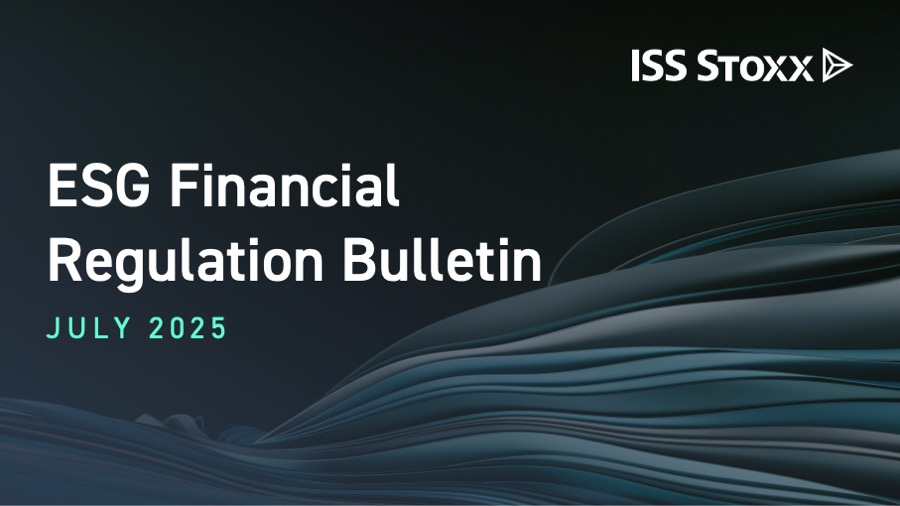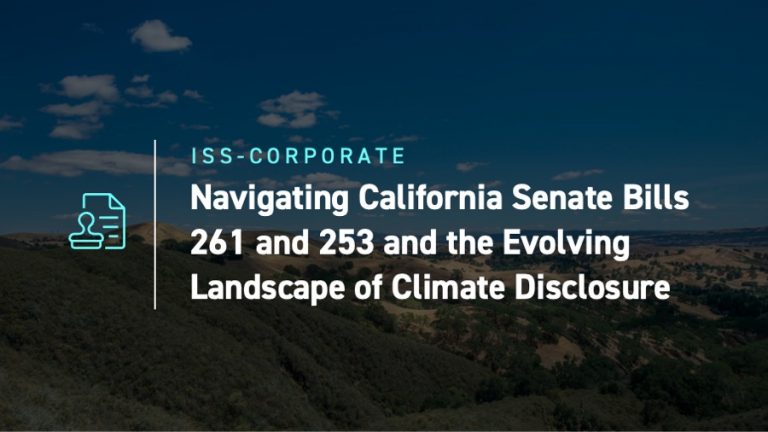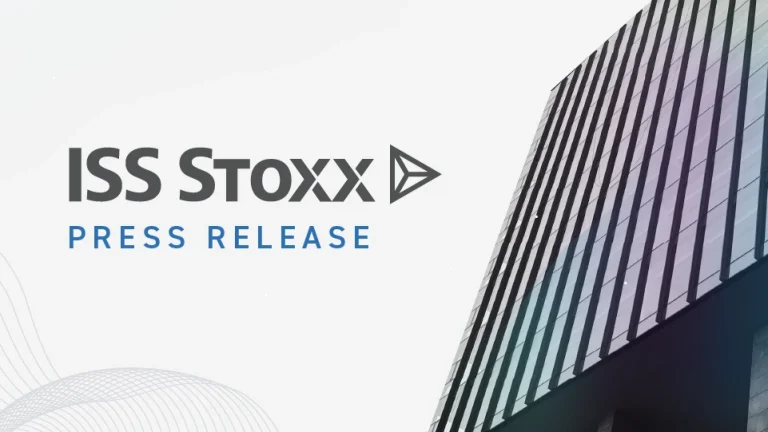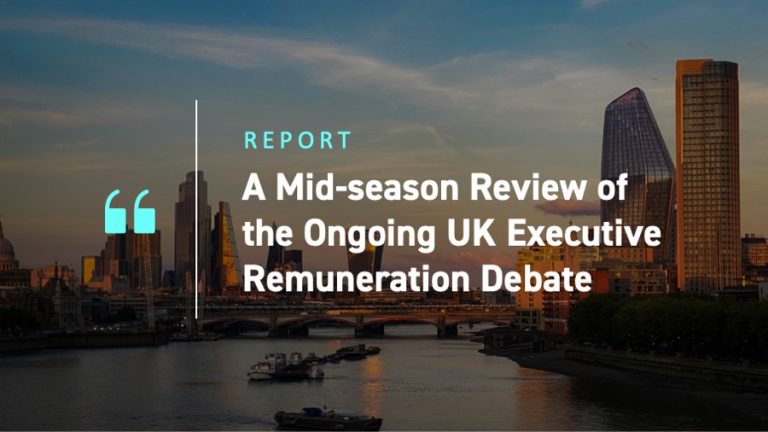
ISSB
IFRS Foundation Publishes Jurisdictional Profiles Evidencing Progress Towards Adoption of International Sustainability Standards Board Standards
The IFRS Foundation published on June 12 a set of profiles on 17 jurisdictions where International Sustainability Standards Board (ISSB) sustainability disclosures have been adopted and integrated into local regulatory frameworks. The profiles include information on each jurisdiction’s stated target for alignment with ISSB Standards and the current status of sustainability-related disclosures. The profiles evidence a high degree of alignment with the ISSB standards and help to provide capital market participants with visibility over the extent of ISSB adoption. Profiles are only published when a jurisdiction’s approach to sustainability reporting is finalized and no longer subject to consultation. To date, 36 jurisdictions have either adopted the ISSB standards or are in the process of doing so.
IFRS Foundation Launches New E-Learning Modules to Support Implementation of ISSB Standards
The IFRS Foundation released on June 13 a series of e-learning modules to support companies subject to new reporting obligations under the ISSB standards. Four e-learning modules, accessible through the IFRS Sustainability Knowledge Hub, have been developed to build foundational knowledge of the ISSB Standards. The modules provide introductions to IFRS Sustainability Disclosure Standards, the IFRS S1 General Requirements for Disclosure of Sustainability-related Financial Information, the IFRS S2 Climate-related Disclosures, and integrated sustainability disclosures and organizational considerations.
IFRS Foundation Publishes Guidance on Transition Plan Disclosures
The IFRS Foundation published new guidance material on June 23 on “Disclosing information about an entity’s climate-related transition, including information about transition plans, in accordance with IFRS S2.” The guidance documents are intended to support the implementation of the ISSB standards and build upon previously issued disclosure-specific material developed by the Transition Plan Taskforce (TPT). The guidance is designed to support entities in applying the IFRS S2 Climate-related Disclosures and to enable high-quality information to be published about their climate-related transition.
TNFD
Taskforce on Nature-related Financial Disclosures Releases Final Guidance for the Fishing and Marine Transportation and Cruise Line Sectors and Consultation on Ocean Measurement
The Taskforce on Nature-related Financial Disclosures (TNFD) published on June 6 a package of additional maritime sector guidance for the fishing, marine transportation, and cruise line industries. The package consists of final sector guidance for the fishing and marine transportation and cruise lines industries, in addition to a discussion paper on measurement of ocean-related issues. This additional sector guidance reflects consideration of the specific characteristics of marine ecosystems and distinct maritime governance regimes and responds to strong demand from companies operating in maritime sectors for more tailored support. The discussion paper has been published to support ongoing consultation on the measurement of ocean-related issues. To inform this ongoing work, the TNFD has launched an ocean-related issues survey, open until October 1.
Basel Committee
Basel Committee Publishes Framework for Voluntary Disclosure of Climate-Related Financial Risks
The Basel Committee on Banking Supervision published its voluntary framework for the disclosure of climate-related financial risks on June 13. The framework, which envisages the disclosure of both qualitative and quantitative information, incorporates a significant level of flexibility in view of the evolving nature of climate-related data. The Basel Committee highlights that both quantitative and qualitative information is required to form a comprehensive picture of banks’ exposure to climate-related financial risks. The Basel Committee will continue to monitor relevant developments in the realm of climate-related reporting and consider revisions to the framework in the future, where warranted.
SBTi
The Science Based Targets Initiative Opens Consultation on New Standard to Accelerate Automotive Industry’s Net-Zero Transition
The Science Based Targets initiative (SBTi) launched a public consultation on its draft SBTi Automotive Sector Net-Zero Standards on June 12. The proposed Standard provides a comprehensive framework specifically tailored for the automotive sector, which the Standard describes as contributing to greenhouse gas emissions and being vulnerable to a range of climate-related risks. The Standard is aligned with the draft Corporate Net-Zero Standard Version 2, which defines broader cross-sector requirements. The consultation, which closes on August 11, encourages stakeholders to provide feedback that will ensure the final Standard is practical but also rigorous.
SBTI Calls for Companies to Pilot Draft Corporate Net-Zero Standard Version 2
The SBTi launched a pilot of the draft Corporate Net-Zero Standard Version 2 on June 16, inviting companies to participate. As described, the pilot is essential for gathering evidence to help ensure the SBTi’s flagship Standard is both scientifically robust and practical for businesses. The pilot will be carried out in two phases. The first consists of a broad survey open to companies across all sectors and regions with the aim of gathering input to further refine the draft Standard. Phase Two consists of a “hands-on” trial, with selected companies using real-world data to test a near-final version of the draft Standards, or specific components of it. Companies interested in participating in the pilot should complete the Corporate Net-Zero Standard V2 Pilot Test Phase 1: Company Survey by August 15.

Japan
Financial Services Agency Publishes Report on Practices and Issues on Climate-Related Risk Management
The Financial Services Agency of Japan (FSA) published a report on June 20 illustrating the practices of financial institutions in addressing climate-related risks. The report assesses how financial institutions have applied the FSA’s Supervisory Guidance on Climate-related Risk Management and Client Engagement, published in July 2022. In general, the FSA finds that financial institutions covered by the report have made progress in addressing climate-related risks in a manner suited to their respective size and business characteristics. That said, the report notes that financial institutions have faced challenges in integrating consideration of medium- to long-term climate-related risks into conventional risk management frameworks.
FSA Conducts Second Climate Scenario Analyses in the Insurance and Banking Sectors
The FSA released the outcome of the second scenario analysis on climate-related risks in the Japanese insurance and banking sectors on June 20.
In the insurance sector, the FSA cooperated with multiple non-life insurers and the General Insurance Rating Organization of Japan (GIROJ) to assess acute physical risks and their potential impact on the financial liabilities of non-life insurers. According to the FSA’s findings, the results of the second scenario analysis demonstrate the magnitude of acute physical risk if climate change progresses and indicate that insurance premiums may have to increase significantly if such an eventuality were to arise.
In the banking sector, the second scenario analysis was carried out in cooperation with the Bank of Japan (BoJ) and three major banks. The stated purpose of the second scenario analysis in the banking sector was not to quantitatively assess the impact of climate-related risks but rather to identify areas for future improvement in banks’ approach to scenario analysis and to support the FSA and the BoJ’s ongoing in-depth dialogues with banks in relation to climate risk. The results of the scenario analysis found that banks’ analytical capability has improved since the first analysis took place.
FSA Finalizes the Third Revision of Japan’s Stewardship Code
The FSA published the Third Revision of Japan’s Principles for Responsible Institutional Investors, or Stewardship Code, on June 26. The review of the Code began in October 2024, with the FSA having consulted on draft revisions between March and April of 2025. The final revisions to the Code aim to foster more meaningful long-term dialogue between institutional investors and investee companies and ensure investors reflect greater “substance” in their engagement.
Singapore
Monetary Authority of Singapore Establishes Corporate Governance Advisory Committee to Review Code of Corporate Governance
The Monetary Authority of Singapore (MAS) announced on May 29 the creation of the Corporate Governance Advisory Committee (CGAC) to review Singapore’s Code of Corporate Governance (CG Code). The CGAC will consist of two subcommittees. The first will consider measures to ensure more meaningful implementation of the CG Code, including the potential for additional guidance and practical examples. The second will consider new CG Code provisions or supplemental guidance on corporate culture, board effectiveness, and risk management of novel topics, such as artificial intelligence. The CGAC will consult with industry stakeholders during any future review of the CG Code.
Accounting and Corporate Regulatory Authority of Singapore Launches Body of Knowledge to Facilitate the Design of Training Programs for Sustainability Reporting
The Accounting and Corporate Regulatory Authority (ACRA) launched the Sustainability Reporting Body of Knowledge (SR BOK) on May 19, coinciding with the release of the ISSB’s Preparer Readiness Training. The SR BOK provides a comprehensive overview of essential aspects of corporate sustainability reporting standards and requirements to assist training providers in developing programs for professionals involved in sustainability reporting. The SR BOK has been developed to enable Singapore to build a robust talent pipeline for the rapidly expanding field of sustainability-related reporting.
Malaysia
Bank Negara Malaysia and the Securities Commission Malaysia Issue Joint Statement on the Rollout of the Climate Finance Innovation Lab
The Bank Negara Malaysia and the Securities Commission (SC) Malaysia issued a Joint Statement on June 18 on the launch of the Climate Finance Innovation Lab (CFIL). The initiative was conceived at the 14th meeting of Malaysia’s Joint Committee on Climate Change (JC3) in January 2025 as a means to accelerate the development of innovative climate finance solutions. The CFIL provides a collaborative platform involving public, private, and philanthropic partnerships to identify, co-develop, and implement innovative climate financial solutions to strengthen Malaysia’s climate resilience. The CFIL’s focus is on four thematic areas, namely, energy transition and green innovation; sustainable agriculture; circular economy and sustainable cities; and nature-based solutions and biodiversity.
South Korea
Ministry of Economy and Finance to Develop the Global Voluntary Carbon Market in Collaboration with the Secretariat of the UN Framework Convention on Climate Change and Global Green Growth Institute
The Ministry of Economy and Finance (MoEF) announced on May 29 the signing of a contribution agreement with the United Nations Framework Convention on Climate Change (UNFCCC) Secretariat, and a memorandum of understanding (MoU) with the Global Green Growth Institute (GGGI) to enable cooperation in developing the Global Voluntary Carbon Market Aligned with the Paris Agreement (GVCM). The GVCM is an Article 6-aligned carbon market model aimed at fostering international carbon credit trading with enhanced credibility by addressing the challenges of existing voluntary carbon markets. Key areas of collaboration are stated to include developing credit issuance methodologies, facilitating international credit trading, building capacity in developing countries, and exploring ways to leverage private sector investment.
Australia
Australian Sustainable Finance Institute launches the Australian Sustainable Finance Taxonomy
The Australian Sustainable Finance Institute (ASFI) launched the Australian Sustainable Finance Taxonomy (Version 1) on June 17. The Taxonomy provides a clear, Paris-aligned classification system for green and transition finance, tailored to Australia’s specific economic and environmental context. It is designed to offer financial institutions and businesses a science-based, voluntary framework to help ensure their investments contribute to achieving Net Zero and other environmental objectives. With the technical development of the Taxonomy now finalized, the ASFI will work with financial institutions and policymakers to integrate the Taxonomy into Australia’s broader financial and policy framework.

EU
European Commission Publishes Package of Measures to Enhance European Defense Readiness
The European Commission published the European Defence Readiness Omnibus (Defense Omnibus) on June 17. The Defense Omnibus envisages a series of measures, both legislative and non-legislative, to enable the rapid expansion of the European defense industry by simplifying defense procurement, intra-EU transfers of arms, and administrative requirements associated with the disbursement of EU funds for defense investments. In addition, the European Commission will introduce fast-track-permitting regimes for defense-related infrastructure projects and issue clarifications under Environmental and Chemicals legislation to allow defense readiness projects to benefit from existing derogations for activities with overriding public interests. In the realm of sustainable finance, the European Commission also issued a Notice clarifying the application of sustainable finance legislation to defense investments and clarifications around the definition of controversial weapons.
European Securities and Markets Authority Publishes Principles on Third-Party Risk Supervision
The European Securities and Markets Authority (ESMA) published a set of Principles on Third-Party Risks Supervision on June 12. The Principles were developed in response to the increasing use of third-party services in the EU financial sector for a wide range of purposes. ESMA notes that a third-party can “belong to the same group as the entity or not, can be located in the EU or outside it, and can be regulated or unregulated,” thus underlining the need for some guidance on how risks arising from third-party services should be supervised. ESMA has formulated 14 Principles to ensure entities under their supervisory remit take appropriate measures to ensure appropriate oversight and governance of third-party service providers, ranging from risk assessments and robust contractual provisions to intragroup arrangements and audit rights.
European Banking Authority Launches Consultation on Amended Disclosure Requirements for ESG Risks, Equity Exposures, and Aggregate Exposure to Shadow Banking Entities
The European Banking Authority (EBA) launched a public consultation on proposed amendments to the European Commission’s implementing Regulation on Pillar 3 disclosures under the Capital Requirements Regulation (CRR3). According to the consultation, the EBA is proposing more proportionate disclosure requirements in relation to ESG-related risks in line with the regulatory simplification agenda of the European Commission. The consultation also specifies disclosures in relation to equity exposures and aggregate exposure to “shadow banking” entities. Additionally, it proposes to update the statistical classification of economic activities to reflect recent NACE revisions. The consultation will close on August 22.
European Financial Reporting Advisory Group Releases Progress Report on ESRS Simplification
The European Financial Reporting Advisory Group (EFRAG) published a Progress Report on June 20 providing a status update on ongoing work to simplify the European Sustainability Reporting Standards (ESRS). The report indicates that EFRAG’s simplification efforts are proceeding in accordance with the timeframe established by the project workplan published by EFRAG on April 25. Following an extensive consultation period with various stakeholders, EFRAG began drafting revised standards in early May with the aim of delivering an intermediary version by the end of June.
The EFRAG has identified a number of “levers” designed to simplify the ESRS, including Lever 1: Simplification of the double materiality assessment; Lever 2: Better readability of sustainability statements; Lever 3: Critical modification of minimum disclosure requirements and topical specifications; Lever 4: Improved understandability of the standards; Lever 5: Introduction of other burden-reduction reliefs; and Lever 6: Enhanced interoperability.
UK
Financial Reporting Council Publishes Revised U.K. Stewardship Code to Streamline Stewardship Reporting
The U.K. Financial Reporting Council (FRC) published the updated U.K. Stewardship Code (the UK Stewardship Code 2026) on June 3. The revised Code includes an updated set of principles against which investors should report their stewardship activities to obtain Code signatory status. It also includes principles specifically tailored for proxy advisory firms with respect to their role in the market and how their activities can help contribute to investor stewardship. The revised Code, which was adopted following extensive stakeholder consultation, also updates the definition of “investor stewardship,” removing explicit references to sustainability. Entities wishing to become or remain signatories to the U.K. Stewardship Code will be expected to report against the revised principles as of 2026 (covering their stewardship activities in 2025).
Department for Business and Trade Consults on Exposure Drafts for U.K.’s Sustainability Reporting Standards
The Department for Business and Trade published Exposure Drafts for the U.K.’s Sustainability Reporting Standards (SRS) on June 25. The U.K. SRS are based on the IFRS S1 General Requirements and IFRS S2 Climate-related disclosures, with six minor amendments to render the disclosures more appropriate to a U.K. context. The Department for Business and Trade has also opened a public consultation seeking feedback on the Exposure Drafts. The consultation will close on September 17. According to the release, the U.K. Government will determine whether to require entities to report against the U.K. SRS in the future, based on the feedback received.

US
Securities and Exchange Commission Withdraws 14 Biden-Era Proposed Rules
The Securities and Exchange Commission (SEC) formally withdrew, on June 12, 14 proposed rules issued under the Biden administration. The proposals covered a wide range of topics, from cybersecurity risk management by registered investment advisers and investment companies to Environmental, Social and Governance (ESG) disclosures by investment advisers and investment companies, to “outsourcing” by investment advisers.
By:
Hugo Gallagher, Senior Associate, Regulatory Affairs & Public Policy, ISS STOXX
Karina Karakulova, Director of Regulatory Affairs & Public Policy, ISS STOXX




